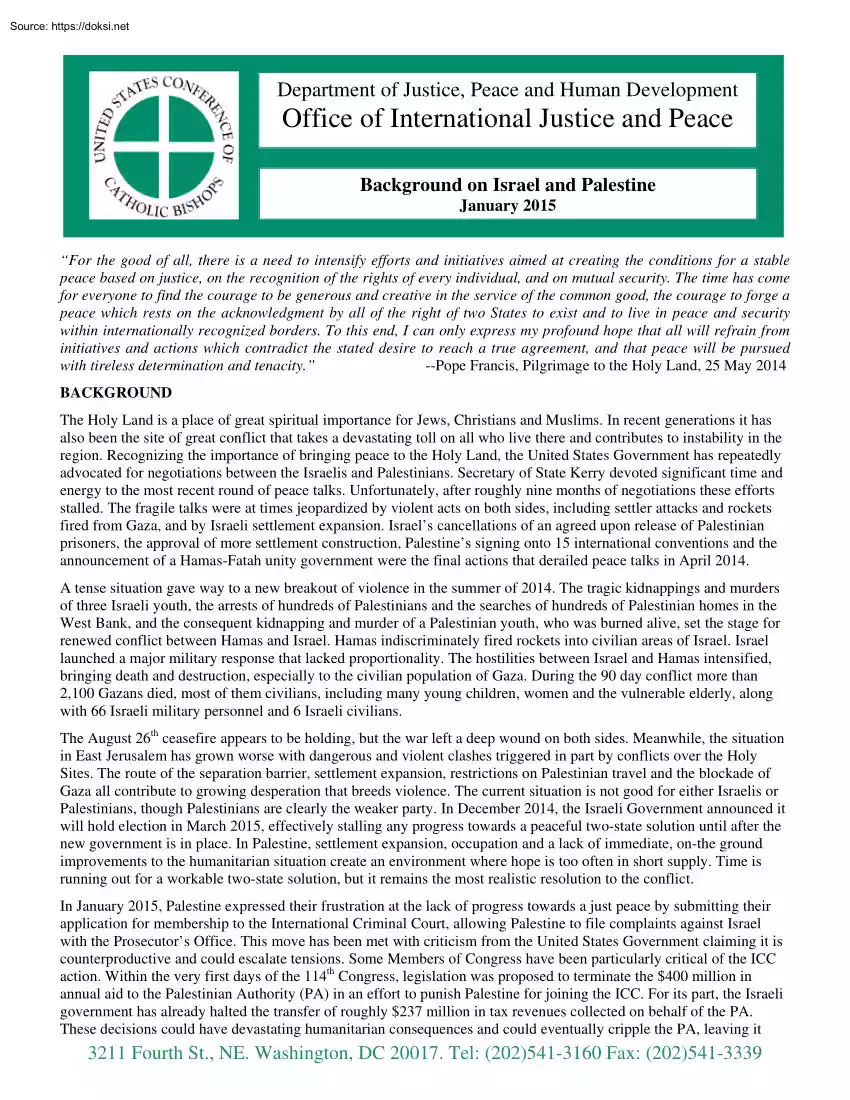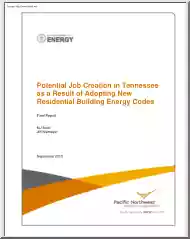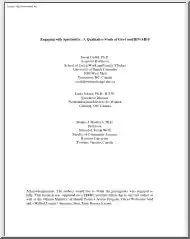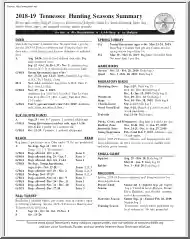A doksi online olvasásához kérlek jelentkezz be!

A doksi online olvasásához kérlek jelentkezz be!
Nincs még értékelés. Legyél Te az első!
Mit olvastak a többiek, ha ezzel végeztek?
Tartalmi kivonat
Department of Justice, Peace and Human Development Office of International Justice and Peace Background on Israel and Palestine January 2015 “For the good of all, there is a need to intensify efforts and initiatives aimed at creating the conditions for a stable peace based on justice, on the recognition of the rights of every individual, and on mutual security. The time has come for everyone to find the courage to be generous and creative in the service of the common good, the courage to forge a peace which rests on the acknowledgment by all of the right of two States to exist and to live in peace and security within internationally recognized borders. To this end, I can only express my profound hope that all will refrain from initiatives and actions which contradict the stated desire to reach a true agreement, and that peace will be pursued with tireless determination and tenacity.” --Pope Francis, Pilgrimage to the Holy Land, 25 May 2014 BACKGROUND The Holy Land is a place of
great spiritual importance for Jews, Christians and Muslims. In recent generations it has also been the site of great conflict that takes a devastating toll on all who live there and contributes to instability in the region. Recognizing the importance of bringing peace to the Holy Land, the United States Government has repeatedly advocated for negotiations between the Israelis and Palestinians. Secretary of State Kerry devoted significant time and energy to the most recent round of peace talks. Unfortunately, after roughly nine months of negotiations these efforts stalled. The fragile talks were at times jeopardized by violent acts on both sides, including settler attacks and rockets fired from Gaza, and by Israeli settlement expansion. Israel’s cancellations of an agreed upon release of Palestinian prisoners, the approval of more settlement construction, Palestine’s signing onto 15 international conventions and the announcement of a Hamas-Fatah unity government were the final
actions that derailed peace talks in April 2014. A tense situation gave way to a new breakout of violence in the summer of 2014. The tragic kidnappings and murders of three Israeli youth, the arrests of hundreds of Palestinians and the searches of hundreds of Palestinian homes in the West Bank, and the consequent kidnapping and murder of a Palestinian youth, who was burned alive, set the stage for renewed conflict between Hamas and Israel. Hamas indiscriminately fired rockets into civilian areas of Israel Israel launched a major military response that lacked proportionality. The hostilities between Israel and Hamas intensified, bringing death and destruction, especially to the civilian population of Gaza. During the 90 day conflict more than 2,100 Gazans died, most of them civilians, including many young children, women and the vulnerable elderly, along with 66 Israeli military personnel and 6 Israeli civilians. The August 26th ceasefire appears to be holding, but the war left a deep
wound on both sides. Meanwhile, the situation in East Jerusalem has grown worse with dangerous and violent clashes triggered in part by conflicts over the Holy Sites. The route of the separation barrier, settlement expansion, restrictions on Palestinian travel and the blockade of Gaza all contribute to growing desperation that breeds violence. The current situation is not good for either Israelis or Palestinians, though Palestinians are clearly the weaker party. In December 2014, the Israeli Government announced it will hold election in March 2015, effectively stalling any progress towards a peaceful two-state solution until after the new government is in place. In Palestine, settlement expansion, occupation and a lack of immediate, on-the ground improvements to the humanitarian situation create an environment where hope is too often in short supply. Time is running out for a workable two-state solution, but it remains the most realistic resolution to the conflict. In January 2015,
Palestine expressed their frustration at the lack of progress towards a just peace by submitting their application for membership to the International Criminal Court, allowing Palestine to file complaints against Israel with the Prosecutor’s Office. This move has been met with criticism from the United States Government claiming it is counterproductive and could escalate tensions. Some Members of Congress have been particularly critical of the ICC action. Within the very first days of the 114th Congress, legislation was proposed to terminate the $400 million in annual aid to the Palestinian Authority (PA) in an effort to punish Palestine for joining the ICC. For its part, the Israeli government has already halted the transfer of roughly $237 million in tax revenues collected on behalf of the PA. These decisions could have devastating humanitarian consequences and could eventually cripple the PA, leaving it 3211 Fourth St., NE Washington, DC 20017 Tel: (202)541-3160 Fax:
(202)541-3339 unable to pay the salaries of its employees and undermining security coordination with Israel. USCCB POSITION The path to peace in the Holy Land requires respect for the human rights and dignity of both Israelis and Palestinians. People of good will on both sides of the conflict want the same thing, a dignified life worthy of the human person. Israelis should not have to live in fear of Hamas’ indiscriminate rocket attacks on civilian areas. At the same time, Palestinians should not have to live in fear for their lives from air and ground attacks or to suffer the humiliations of occupation. USCCB has worked with Jewish, Christian and Muslim religious leaders in the United States to make a just peace between Israelis and Palestinians a top priority of US foreign policy. Through regular communication and visits to the Holy Land, USCCB acts in solidarity with the vulnerable Christian community in the Holy Land that has suffered as a result of this ongoing conflict. In
September 2014, 18 Bishops along with USCCB and CRS staff undertook a Prayer Pilgrimage for Peace in the Holy Land. Throughout their Pilgrimage, they spread the message that prayer is powerful, peace is possible, and that we must work towards a twostate solution. In coordination with the Pilgrimage and in support of the peace process, the Bishops called on Catholics to pray for peace in the Holy Land and throughout the Middle East and the World. For decades, USCCB has urged U.S leadership for peace and, more recently, has applauded Secretary Kerry’s efforts to advance peace talks. Only the emergence of a viable and independent Palestinian state living alongside a recognized and secure Israel will bring the peace for which majorities of both Israelis and Palestinians yearn. This two-state solution enhances Israeli security, preserves Israel as a Jewish majority democratic state, gives Palestinians the dignity of their own state, allows access to the Holy Sites of all three faiths,
promotes economic development in the region, and undermines extremists who exploit the conflict. The events of the past year clearly demonstrate that there is no military solution for the Israeli-Palestinian conflict and that the status quo is unsustainable and a recipe for recurring violence. While reaching an agreement has proved to be difficult, the Church remains hopeful that peace is possible. It is more urgent than ever that the United States and the international community reengage in the difficult, but essential, work of building a just and lasting peace by working with the parties to launch a new, even more determined initiative for a two-state peace agreement. The United States, in coordination with the Quartet (UN, EU, Russia, US), should offer a balanced and fair framework to the Government of Israel and the Palestinian Authority as the basis for negotiating a peace agreement. Without a peace agreement, there is a risk of more unilateral actions and renewed violence. This
would be tragic for both Israelis and Palestinians and contribute to more acute instability in the region, one already experiencing great turmoil. Public officials must be creative, take new approaches, and build bridges not walls. The conflict must be humanized by fostering more interaction between Israelis and Palestinians. Peace will only come when all parties respect the fact that the Holy Land is sacred to three faiths and home to two peoples. The failure to reach a peace agreement until now has had dire consequences for the people of the Holy Land. The ongoing conflict assaults the dignity of both Palestinians and Israelis, with the suffering people in Gaza carrying a particularly heavy burden. The continued blockade in Gaza dramatically impedes rebuilding and contributes to desperation that undermines Israelis’ legitimate hope for security. It also creates intolerable levels of unemployment and pushes ordinary people into deeper poverty. The United States and the entire
international community must continue to respond to the urgent humanitarian situation in Palestine. Poverty-focused assistance can reduce inequalities that lead to tensions and too often violence. The work of Catholic Relief Services and similar organizations on the ground in both Gaza and the West Bank is vital for reducing human misery and promoting peace. Unfortunately, there is a risk that important funding for development programs, democracy building and security coordination will be cut. The USCCB urges Congress to resist efforts to cut off assistance to the Palestinians as this would have a far-reaching negative impact on Palestinian communities and the region as a whole. Assistance to Palestinians, already heavily conditioned, is essential for humanitarian purposes and for building capacity for a Palestinian state. It supports civil society and vulnerable communities Cutting this funding will cause irreparable damage to the goodwill of the Palestinian people and would detract
from U.S efforts to seek a just and lasting peace in the Holy Land. This is not in the interests of either Israelis or Palestinians who long for peace RESOURCES: Visit http://www.usccborg/issues-and-action/human-life-and-dignity/global-issues/middle-east/israelpalestine/indexcfm Contact: Stephen Colecchi, Director, USCCB Office of International Justice and Peace, 202-5413160 (phone), scolecchi@usccborg 3211 Fourth St., NE Washington, DC 20017 Tel: (202)541-3160 Fax: (202)541-3339
great spiritual importance for Jews, Christians and Muslims. In recent generations it has also been the site of great conflict that takes a devastating toll on all who live there and contributes to instability in the region. Recognizing the importance of bringing peace to the Holy Land, the United States Government has repeatedly advocated for negotiations between the Israelis and Palestinians. Secretary of State Kerry devoted significant time and energy to the most recent round of peace talks. Unfortunately, after roughly nine months of negotiations these efforts stalled. The fragile talks were at times jeopardized by violent acts on both sides, including settler attacks and rockets fired from Gaza, and by Israeli settlement expansion. Israel’s cancellations of an agreed upon release of Palestinian prisoners, the approval of more settlement construction, Palestine’s signing onto 15 international conventions and the announcement of a Hamas-Fatah unity government were the final
actions that derailed peace talks in April 2014. A tense situation gave way to a new breakout of violence in the summer of 2014. The tragic kidnappings and murders of three Israeli youth, the arrests of hundreds of Palestinians and the searches of hundreds of Palestinian homes in the West Bank, and the consequent kidnapping and murder of a Palestinian youth, who was burned alive, set the stage for renewed conflict between Hamas and Israel. Hamas indiscriminately fired rockets into civilian areas of Israel Israel launched a major military response that lacked proportionality. The hostilities between Israel and Hamas intensified, bringing death and destruction, especially to the civilian population of Gaza. During the 90 day conflict more than 2,100 Gazans died, most of them civilians, including many young children, women and the vulnerable elderly, along with 66 Israeli military personnel and 6 Israeli civilians. The August 26th ceasefire appears to be holding, but the war left a deep
wound on both sides. Meanwhile, the situation in East Jerusalem has grown worse with dangerous and violent clashes triggered in part by conflicts over the Holy Sites. The route of the separation barrier, settlement expansion, restrictions on Palestinian travel and the blockade of Gaza all contribute to growing desperation that breeds violence. The current situation is not good for either Israelis or Palestinians, though Palestinians are clearly the weaker party. In December 2014, the Israeli Government announced it will hold election in March 2015, effectively stalling any progress towards a peaceful two-state solution until after the new government is in place. In Palestine, settlement expansion, occupation and a lack of immediate, on-the ground improvements to the humanitarian situation create an environment where hope is too often in short supply. Time is running out for a workable two-state solution, but it remains the most realistic resolution to the conflict. In January 2015,
Palestine expressed their frustration at the lack of progress towards a just peace by submitting their application for membership to the International Criminal Court, allowing Palestine to file complaints against Israel with the Prosecutor’s Office. This move has been met with criticism from the United States Government claiming it is counterproductive and could escalate tensions. Some Members of Congress have been particularly critical of the ICC action. Within the very first days of the 114th Congress, legislation was proposed to terminate the $400 million in annual aid to the Palestinian Authority (PA) in an effort to punish Palestine for joining the ICC. For its part, the Israeli government has already halted the transfer of roughly $237 million in tax revenues collected on behalf of the PA. These decisions could have devastating humanitarian consequences and could eventually cripple the PA, leaving it 3211 Fourth St., NE Washington, DC 20017 Tel: (202)541-3160 Fax:
(202)541-3339 unable to pay the salaries of its employees and undermining security coordination with Israel. USCCB POSITION The path to peace in the Holy Land requires respect for the human rights and dignity of both Israelis and Palestinians. People of good will on both sides of the conflict want the same thing, a dignified life worthy of the human person. Israelis should not have to live in fear of Hamas’ indiscriminate rocket attacks on civilian areas. At the same time, Palestinians should not have to live in fear for their lives from air and ground attacks or to suffer the humiliations of occupation. USCCB has worked with Jewish, Christian and Muslim religious leaders in the United States to make a just peace between Israelis and Palestinians a top priority of US foreign policy. Through regular communication and visits to the Holy Land, USCCB acts in solidarity with the vulnerable Christian community in the Holy Land that has suffered as a result of this ongoing conflict. In
September 2014, 18 Bishops along with USCCB and CRS staff undertook a Prayer Pilgrimage for Peace in the Holy Land. Throughout their Pilgrimage, they spread the message that prayer is powerful, peace is possible, and that we must work towards a twostate solution. In coordination with the Pilgrimage and in support of the peace process, the Bishops called on Catholics to pray for peace in the Holy Land and throughout the Middle East and the World. For decades, USCCB has urged U.S leadership for peace and, more recently, has applauded Secretary Kerry’s efforts to advance peace talks. Only the emergence of a viable and independent Palestinian state living alongside a recognized and secure Israel will bring the peace for which majorities of both Israelis and Palestinians yearn. This two-state solution enhances Israeli security, preserves Israel as a Jewish majority democratic state, gives Palestinians the dignity of their own state, allows access to the Holy Sites of all three faiths,
promotes economic development in the region, and undermines extremists who exploit the conflict. The events of the past year clearly demonstrate that there is no military solution for the Israeli-Palestinian conflict and that the status quo is unsustainable and a recipe for recurring violence. While reaching an agreement has proved to be difficult, the Church remains hopeful that peace is possible. It is more urgent than ever that the United States and the international community reengage in the difficult, but essential, work of building a just and lasting peace by working with the parties to launch a new, even more determined initiative for a two-state peace agreement. The United States, in coordination with the Quartet (UN, EU, Russia, US), should offer a balanced and fair framework to the Government of Israel and the Palestinian Authority as the basis for negotiating a peace agreement. Without a peace agreement, there is a risk of more unilateral actions and renewed violence. This
would be tragic for both Israelis and Palestinians and contribute to more acute instability in the region, one already experiencing great turmoil. Public officials must be creative, take new approaches, and build bridges not walls. The conflict must be humanized by fostering more interaction between Israelis and Palestinians. Peace will only come when all parties respect the fact that the Holy Land is sacred to three faiths and home to two peoples. The failure to reach a peace agreement until now has had dire consequences for the people of the Holy Land. The ongoing conflict assaults the dignity of both Palestinians and Israelis, with the suffering people in Gaza carrying a particularly heavy burden. The continued blockade in Gaza dramatically impedes rebuilding and contributes to desperation that undermines Israelis’ legitimate hope for security. It also creates intolerable levels of unemployment and pushes ordinary people into deeper poverty. The United States and the entire
international community must continue to respond to the urgent humanitarian situation in Palestine. Poverty-focused assistance can reduce inequalities that lead to tensions and too often violence. The work of Catholic Relief Services and similar organizations on the ground in both Gaza and the West Bank is vital for reducing human misery and promoting peace. Unfortunately, there is a risk that important funding for development programs, democracy building and security coordination will be cut. The USCCB urges Congress to resist efforts to cut off assistance to the Palestinians as this would have a far-reaching negative impact on Palestinian communities and the region as a whole. Assistance to Palestinians, already heavily conditioned, is essential for humanitarian purposes and for building capacity for a Palestinian state. It supports civil society and vulnerable communities Cutting this funding will cause irreparable damage to the goodwill of the Palestinian people and would detract
from U.S efforts to seek a just and lasting peace in the Holy Land. This is not in the interests of either Israelis or Palestinians who long for peace RESOURCES: Visit http://www.usccborg/issues-and-action/human-life-and-dignity/global-issues/middle-east/israelpalestine/indexcfm Contact: Stephen Colecchi, Director, USCCB Office of International Justice and Peace, 202-5413160 (phone), scolecchi@usccborg 3211 Fourth St., NE Washington, DC 20017 Tel: (202)541-3160 Fax: (202)541-3339




 Útmutatónk teljes körűen bemutatja az angoltanulás minden fortélyát, elejétől a végéig, szinttől függetlenül. Ha elakadsz, ehhez az íráshoz bármikor fordulhatsz, biztosan segítségedre lesz. Egy a fontos: akarnod kell!
Útmutatónk teljes körűen bemutatja az angoltanulás minden fortélyát, elejétől a végéig, szinttől függetlenül. Ha elakadsz, ehhez az íráshoz bármikor fordulhatsz, biztosan segítségedre lesz. Egy a fontos: akarnod kell!